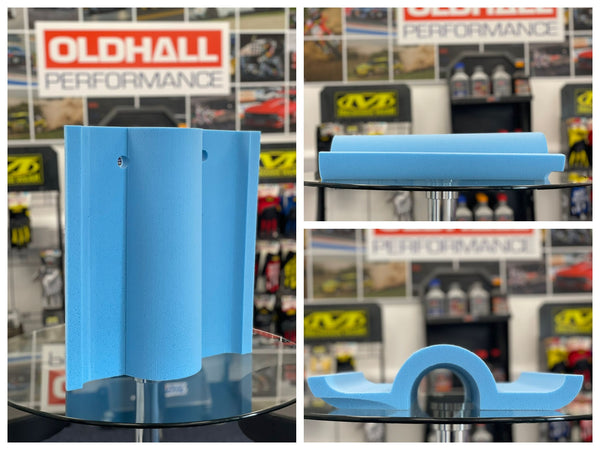
Despite the hassle and cost of unplanned maintenance, too many of us ignore our vehicles until something fails. These eight often overlooked vehicle maintenance services will help avoid expensive car repairs and boost vehicle performance.
Change Gear Oil
Oil change is the gem for good vehicle maintenance, and for good reasons. But most motorists completely forget about the gearbox until it shifts hard, slips or fails altogether. Rebuilding an automatic gearbox can easily cost more than £1,500. A gearbox flush and gearbox oil change costs far less and will do wonders for maximising gearbox life and performance.
Even though some newer vehicles are equipped with “fill-for-life” gear oil, it normally means “fill for the life of the warranty.” It’s just as important to service those units periodically as well.
Differential Service
Too often your vehicle’s differential is out of sight, out of mind. In addition, the large van towing-capacity war between the top van manufacturers have resulted in vans that can tow up to a staggering 3,600kg. While all this power is directed through the differentials and bearings, the latter have largely remained unchanged. Adding to the challenge, some manufacturers have reduced the amount of differential oil in the rear end to help reduce drag and improve fuel efficiency.
For optimum differential life, make sure to change the differential oil periodically, especially if you tow or haul.
Radiator and Cooling System Flush and Refill
Nearly 40 percent of engine failures can be attributed to cooling-system issues, yet your vehicle’s cooling system has probably gone untouched for years. If sludge has formed, they can block the radiator, heater core or pipes, resulting in overheating and expensive repairs. Plus, once the anti-corrosion additives have depleted, metal engine and cooling-system components become vulnerable and can fail.
Flush your cooling system periodically and refill using a high-quality organic-acid antifreeze/coolant. Avoid the conventional “green” antifreeze found at most car parts retailers. They contain inorganic salts, such as nitrites, phosphates and silicates, that deplete quickly – typically in two years or less. Once depleted, they are the source of common cooling-system problems, like scale deposits and sludge. For these reasons, most vehicle manufacturers have moved away from inorganic salts for newer vehicles.
Change Brake Fluid
Over time, moisture can build up in brake fluid, lowering its boiling point and causing the brakes to feel spongy. The anti-corrosion additives also slowly deplete, leaving components vulnerable to rust and failure.
DOT 3 brake fluid should be changed every time the brake pads are changed to avoid moisture build-up and corrosion. DOT 4 brake fluid, often used in racing or high-performance vehicles, should be changed every other year.
Power Steering Service
One of the most distinctive – and annoying – sounds your vehicle can make when something isn’t quite right is the high-pitched whine from the power steering pump. A few different things can cause it, including air trapped in the system, power steering pump wear or fluid that has broken down.
Like any other lubricant, power steering fluid accumulates wear material, moisture and other debris over time. The fluid also oxidises over time and breaks down, and therefore should be changed at prescribed intervals. Doing so can help avoid costly and noisy problems down the road.
Fuel Injector Cleaning
Over time, performance-robbing deposits form on your engine’s fuel injectors, valves and in the combustion chamber. Today’s injectors are highly engineered to tight tolerances, and even minute deposits interfere with the spray pattern and reduce power and fuel economy. The problem is especially pronounced in direct-injection engines that locate the fuel injectors in the combustion chamber, exposed to intense heat. Eventually, you’ll notice a reduction in power, throttle response, fuel efficiency or drivability.
Periodically treat fuel with a high-quality additive formulated to clean deposits to keep fuel injectors working properly and help avoid expensive replacements.
Check and Replace your PCV Valve
When your engine is running, combustion gases build pressure in the crankcase. In the past, pressurised gases were allowed to escape into the atmosphere past seals and gaskets. Engineers eventually upgraded to the road draft tube, which functioned exactly as it sounds – unburned hydrocarbons escaped the engine via a tube directed into the vehicle’s slipstream under the engine. In addition to dribbling oil all over the road, the tube could clog up with snow or ice in the winter, allowing pressure to build in the crankcase, causing oil leaks.
Today, we use positive crankcase ventilation systems. A PCV system routes pressurised crankcase gases back to the intake manifold to be reburned during combustion. All those unburned gases flowing through the PCV valve, however, can create deposits and cause it to stick, which can increase oil consumption and even reduce fuel efficiency.
Fortunately, your PCV valve is one of the easiest and cheapest parts on the engine to replace. It costs a few quid and is typically located on top of the valve cover. One simple trick is to remove the valve and shake it. If it makes a metallic clicking sound, the valve is free and working properly. If it doesn’t make a sound or feels sluggish, replace it.
Replace Spark Plugs
A wise old mechanic and dealer of used cars and vans once told me, regarding the complicated inner workings of the internal combustion engine, “It’s simple. You just need fuel/air and spark at the right times.” In petrol engines, we rely on spark plugs to provide the electrical charge that ignites the fuel/air. Living within a crucible of heat and combustion gases degrades the plugs. However, dirty, worn plugs can fail to thoroughly ignite the fuel/air mixture, wasting power and reducing fuel efficiency.
For best performance and fuel efficiency, check and replace the spark plugs according to the recommendations in your owner’s manual.



